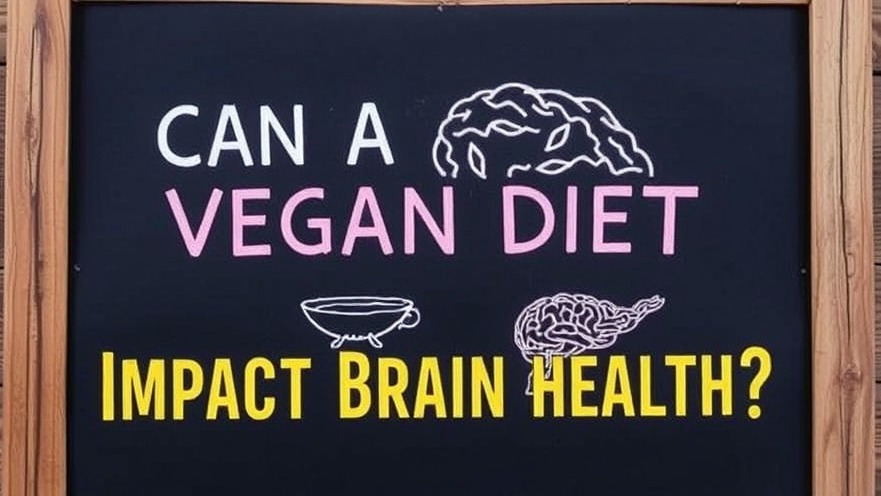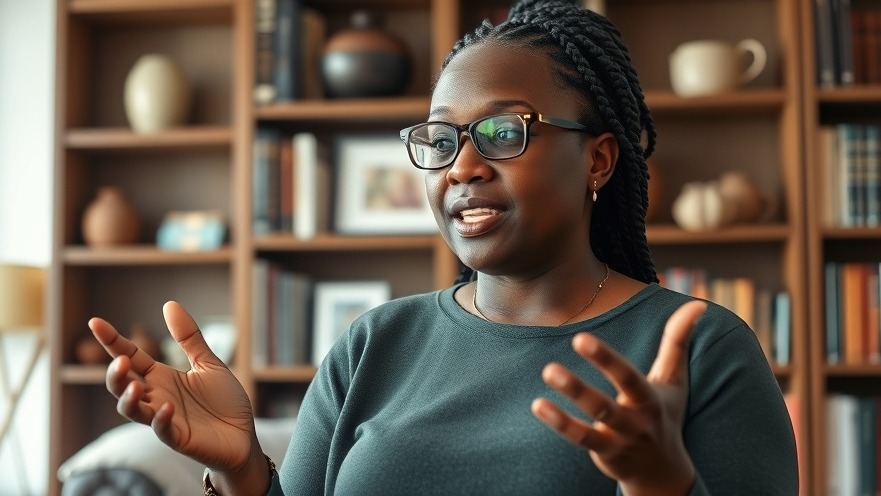
The Fruit Debate: How Much Is Too Much?
In recent years, the popularity of fruit-heavy diets has skyrocketed, with many touting the benefits of raw fruits and juices. However, as the video "Can Eating Lots of Fruit Harm Your Health?" "Here’s What You Need To Know" explores how consuming excessive amounts of fruit may indeed come with its drawbacks, especially as we age. In this piece, we’ll delve into the need for balance in our diets and examine the risks of focusing too heavily on fruit.
In 'Can Eating Lots of Fruit Harm Your Health?' Here’s What You Need To Know," the discussion dives into the health risks associated with fruit-heavy diets as we age, prompting a deeper analysis on our end.
The Importance of Protein and Nutrients
One of the critical insights discussed is that while fruits are packed with vitamins and antioxidants, they fall short in protein content. This deficiency can become crucial as we age, particularly for older adults who require more protein to maintain muscle mass and overall health. The body’s ability to absorb protein decreases with age, and without enough protein intake, individuals may face increased risks of frailty, immune system suppression, and various health issues.
Understanding Caloric Needs Over a Lifetime
As highlighted in the video, caloric needs vary based on height, weight, and activity level. For instance, a shorter woman may require around 1,300 calories daily, which necessitates careful food choices, especially if she’s aiming for a balanced diet. Eating predominantly fruits may lead to nutrient deficiencies, particularly if that fruit intake displaces other critical food groups such as nuts, seeds, and leafy greens. A more diverse approach that includes these higher-protein foods can help meet the required caloric intake while also promoting longevity.
Finding Balance: The 80/20 Rule
So, what is the right approach? A balanced diet may involve limiting fruit to around 500 calories and filling the rest of your intake with nutrient-dense foods like beans, nuts, and vegetables. This strategy not only helps to provide necessary nutrients for aging bodies but also aids in keeping body fat levels in check—something that’s essential for overall health.
Risks of Overemphasis on Fruits
The video touches on the potential downfalls of adhering too strictly to a high-fruit diet. Those who heavily rely on fruits may experience issues like fungal infections, hair loss, and other health complications due to insufficient protein. While some people may thrive on fruit-filled regimes in their younger years, the story often changes as individuals transition into older age. Thus, integrating a more varied diet becomes essential.
What This Means for You
Ultimately, the takeaway from the video suggests that while fruits are an important part of a healthy diet, they should not be the sole focus. For those looking to maintain health and vitality into their later years, incorporating a wide range of foods into their diet is vital. In other words, balance is key; a thoughtful approach connecting both macronutrients and micronutrients is what supports longevity.
Empowering Yourself Through Knowledge
Understanding these dietary principles is empowering. Knowledge gives individuals the ability to craft a diet that not only pleases the palate but also sustains them in the long run. By making informed decisions about food, you can improve your health and well-being significantly.
Your Health Journey Starts Now
If you're keen on adopting healthier habits and embracing a lifestyle that fosters longevity and wellness, consider reading more about balanced diets and the importance of whole-food nutrition. The conversation sparked in the insightful video "Can Eating Lots of Fruit Harm Your Health?" Here’s What You Need To Know" encourages further exploration into what constitutes a healthy diet.
 Add Row
Add Row  Add
Add 




Write A Comment